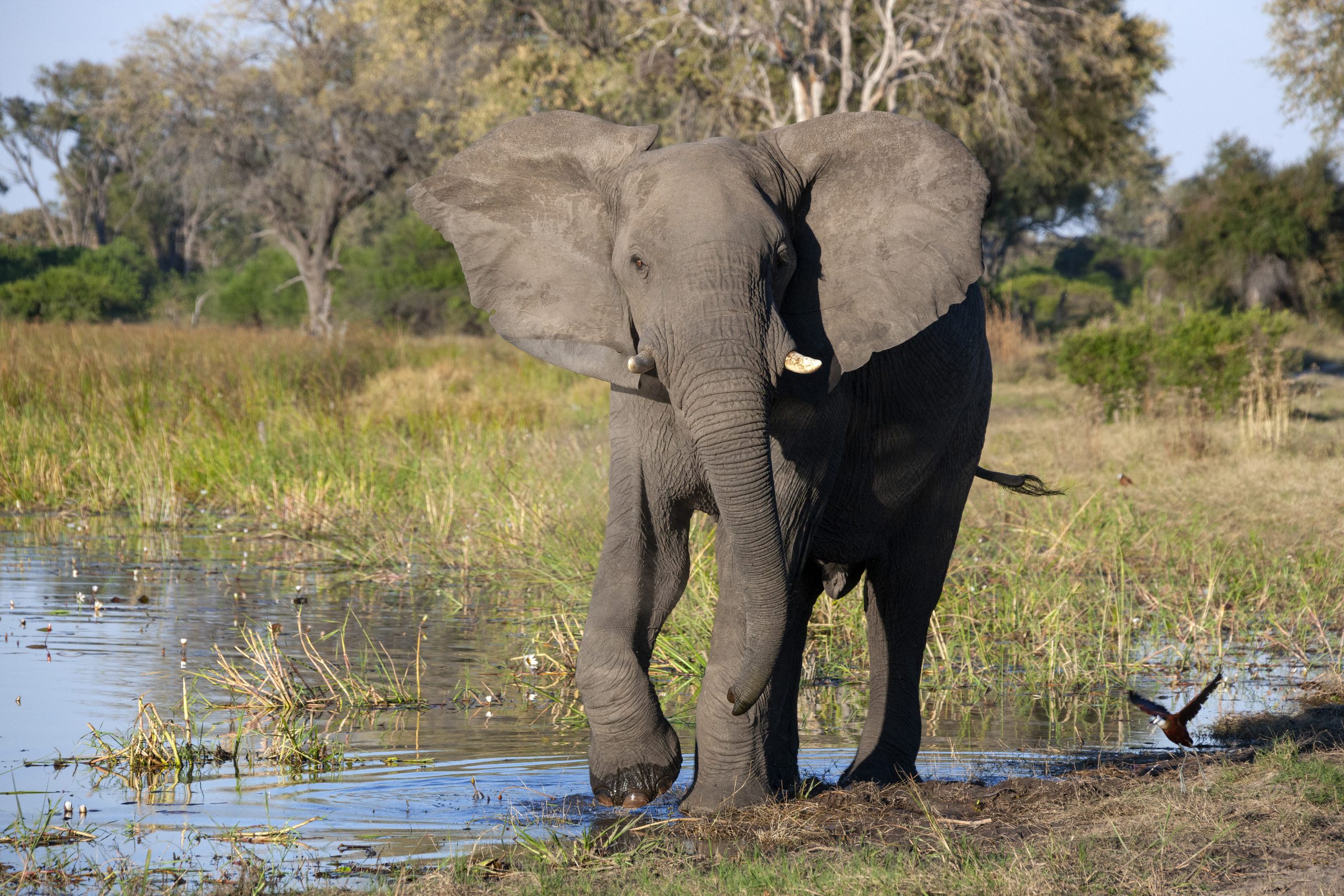
It’s such a pleasure watching the greats continue to be great over the course of a long and productive life. It’s also a source of comfort, because I’m no longer a young man, and I worry about whether I’ll still have a career when I hit sixty or seventy, and if so, whether people will still care about the work, and seeing those legendary elders who are still knocking it out of the park gives me hope.
Robert DeNiro and Al Pacino are not only working at 80+ years old but doing some of the most interesting and surprising work of their lives. Martin Scorsese is not only still in the national conversation but making films that are controversial for one reason or another (with and without his friend De Niro), as if it were still 1976 (“Taxi Driver“) or 1988 (“The Last Temptation of Christ“), and a few years ago he convinced another of my favorite actors, Joe Pesci, to come out of retirement at 76 to play an uncharacteristically quiet and reactive supporting role in “The Irishman.” (He got his third Oscar nomination for it.)

I didn’t care for the recent reboot of “The Exorcist” and didn’t like what they did with the legacy character of Chris McNeil, poor little Regan McNeil’s mother from the original 1973 film, but I loved seeing Burstyn, now 91, seizing the movie by the throat for the brief time she was onscreen. Ian McShane, beloved from TV’s “Lovejoy” and “Deadwood” as well as “Sexy Beast” and the John Wick movies and other crime films, just did a star turn in “American Star” that was completely unlike the avuncular yet menacing characters he has often played in the past quarter century, holding the screen with a quiet stillness you’d expect from somebody like Clint Eastwood, who, as it turns out, is 93 and working on his latest and supposedly final film, the legal thriller “Juror No. 2.” (Do you believe he’ll stop directing after this? I don’t, and why should he? He’s also said several times over the last couple decades that he was done acting, only to act again.)
More off-the-beaten-path, one of my favorite character actors is Bill Cobbs, who became one of those “Oh, I know that guy!” actors forty years ago and is still in the game. You might remember him from “The Hudsucker Proxy,” “Demolition Man,” “The Sopranos,” “ER” or any of the more than 100 screen credits he’s racked up. He’s 89 and has been averaging two major credits a year during his eighth decade, including “Agents of S.H.I.E.L.D.” and “Block Party.” I was hoping I could include M. Emmett Walsh in this piece, but, unfortunately, he died this month at the tender age of 88, after amassing more than 200 film and TV credits dating back to the late 1960s, and his final performance can be seen in a 2024 film, the Mario van Peebles western “Outlaw Posse.”

Denzel Washington is not yet in that age range, but he’s getting there (he turns 70 in December of this year), and it’s been a joy to see him continue to knock assignments out of the park and into the next time zone, in role after role, even as he’s aged out of matinee idol parts. He had his first successful ongoing franchise in his sixties, “The Equalizer,” overseen by Antoine Fuqua, the filmmaker of “Training Day,” which got him his first Oscar as a lead actor, and while I won’t vouch for any of the films as great art, they’re very satisfying as red meat for the reptile brain, and they work so well because Washington is a great screen actor who can suggest multiple contradictory and overlapping thoughts and feelings without saying a word. He’s going to have a brilliant autumnal career, and I wouldn’t be surprised if he did some of the best work of his life when he’s pushing 80 or even 90. He was one of the all-time great screen Macbeths in Joel Coen’s recent “The Tragedy of Macbeth,” opposite Frances McDormand, with three Oscars for lead actress, and who is 66 herself and will also, I am sure, absolutely crush it when she enters her grand old lady phase, as Helen Mirren (78) and Judi Dench (89) have done.
Carol Burnett turns 91 next month, and not only is she still working, she’s sharp and energetic and still pushing herself. I used to watch her show as a kid, first with my grandmother and then with my mother, so there were three generations of my family, at the very least, who adored her. I got to interview her recently for Vulture along with Kristin Wiig, her costar in the Apple+ series “Palm Royale,” about a con artist (Wiig) who tries to gain access to an exclusive country club that wouldn’t ordinarily have somebody like her as a member. The conversation between them was a mutual admiration society, with Wiig paying tribute to Burnett’s formative influence on sketch comedy via variety series and specials (“The Carol Burnett Show” especially) and Burnett praising Wiig’s acting skills (Burnett is just as formidable in dramas and won an Emmy for the 1979 film “Friendly Fire,” about the mother of a Vietnam casualty trying to prove her son was accidentally killed by US troops).
Wiig, I realized at a certain point during the talk, looked at Burnett in much the same the way I did, as this important and in many ways awesome figure, though of course she’d taken her admiration a huge step further and gone into the same line of work, in hopes of being able to become a Burnett-like comedic performer (and succeeded beyond her wildest dreams, appearing on “Saturday Night Live” and then becoming a film and TV star in her own right). Burnett was incredible, talking about her early years in Los Angeles, where she’d lived since age seven, at a time when the Hollywood sign still said “Hollywoodland.” She told us that she and her friends used to ride bikes and go roller skating around the neighborhood and then go up into the hills and climb the sign. That’s how much history she brings with her. I like feeling that history when I watch somebody. That solidity. That sense that you’re seeing somebody who’s bigger than any one performance, somebody whose life and work truly have meant something, and continue to be meaningful.
I’ve been doing this job long enough now (30+ years as a professional) that I’ve gotten to meet and even interview a lot of the performers who obsessed me when I was a kid coming up in the ’70s and ’80s, people who were (obviously) a generation or more older than myself. I’ve gotten to where I find myself thinking about some of them at random, and even checking in on them via news reports, not just to make sure they’re OK but to see if they have something new coming out. It’s like we’re old friends, or related, even the ones I haven’t met. OK, let’s not delude ourselves into a kind of parasocial fantasy: they’re entertainers. But show business is a funny thing. And so is, let’s just say it, art. It’s one of the few careers where the entire point is to connect with strangers so deeply that they feel as if they know you, and feel protective of you, because in some way they feel seen by you, or represented by you, and when it works, wow is it magical and powerful.
I’ve seen manifestations of this alchemy many times in my life, but probably the greatest, for me, happened in 1996, shortly after I’d moved to New York from Dallas. It was late at night, and I was walking to the subway from the Paramount Screening Room in Times Square, and my footpath just happened to take me past the stage door of the Circle in the Square theater, where Pacino had starred in and directed a revival of the Eugene O’Neill play Hughie.

A crowd had gathered, maybe 40 people, to catch a glimpse of Pacino exiting through the stage door. It was clear that this group was not comprised entirely of people who’d seen the play. A lot of them were under 30 and dressed in ordinary walking-around clothes, and there were guys in uniforms (a bike messenger, a hospital orderly) who I supposed had either gotten off work or joined the crowd. When Pacino emerged, they started not only shouting his name but saying lines from his most famous films: “Make him an offer he can’t refuse!” “Chi Chi, get the ya yo!” “Attica, Attica!” “I’d take a flamethrower to this place!” Somebody shouted, “Yo, Carlito!” I’d heard of how certain actors became men or women “of the people” but this was the first time I’d seen the dynamic demonstrated right in front of me.
Pacino came outside to cheers, applause and whistles. A few people moved towards him to get him to sign posters and other merchandise, but what struck me most was the people who reached out to him with ordinary scraps of paper—a flyer, a receipt; one guy handed him a copy of the New York Daily News, basically whatever they could find to affix a signature to. People were sharing pens. This, I thought to myself, was what art was about, or should be about. The work meant something. The art meant something. I’m sure it still means something. Probably somebody in that crowd watched Pacino as Jimmy Hoffa in “The Irishman,” one of the great seriocomic (though ultimately tragic) performances of that movie year, and thought, “Yeah! My boy’s still got it.”




